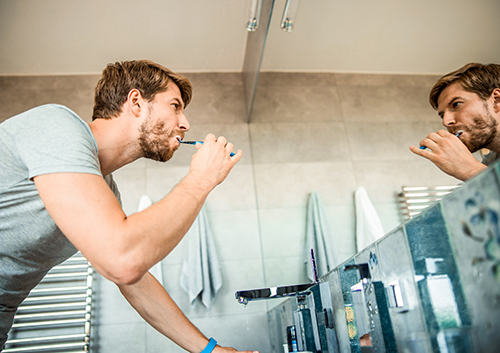Dental X-rays and Your Child
March 1st, 2023

We’re parents, so we worry. It comes with the job description! That’s why we make sure our children use toothbrushes with soft bristles and apply just the right amount of fluoride toothpaste. That’s why we make regular appointments with their dentists for preventive care and examinations. And that’s why we want to know all about the X-rays that are used in our children’s dental exams.
First of all, it’s reassuring to know that the amount of radiation we are exposed to from a single dental X-ray is very small. A set of bitewing X-rays, for example, exposes us to an amount of radiation that is approximately the same as the amount of radiation we receive from our natural surroundings in a single day.
Even so, dentists are especially careful when children need X-rays, because their bodies are still growing and their cells are developing more rapidly than adults. And children often have different dental needs than adults, which can require different types of imaging.
In addition to the usual X-rays that are taken to discover cavities, fractures, or other problems, young patients might need X-rays:
- To confirm that their teeth and jaws are developing properly
- To make sure, as permanent teeth come in, that baby teeth aren’t interfering with the arrival and position of adult teeth, and that there’s enough space in the jaw to accommodate them
- To plan orthodontic treatment
- To check the progress and placement of wisdom teeth
So, how do dentists make sure your child’s radiation exposure during X-ray procedures is as minimal as possible?
Radiologists, the physicians who specialize in imaging procedures and diagnoses, recommend that all dentists and doctors follow the safety principal known as ALARA: “As Low As Reasonably Achievable.” This means using the lowest X-ray exposure necessary to achieve precise diagnostic results for all dental and medical patients.
Moreover, radiologists are devoted to raising awareness about the latest advances in imaging safety not only for dental and medical practitioners, but for the public, as well. With children in mind, pediatric radiologists from a number of professional associations have joined together to create the Image Gently Alliance, offering specific guidelines for the specific needs of young patients.
And because we are always concerned about the safety of our patients, dental associations around the world, including the American Academy of Pediatric Dentistry, the American Dental Association, the American Dental Hygienists’ Association, the Canadian Academy of Pediatric Dentistry, and the Canadian Dental Hygienists Association, are Image Gently Alliance members.
The guidelines recommended for X-rays and other imaging for young people have been designed to make sure all children have the safest experience possible whenever they visit the dentist or the doctor. As dental professionals, Dr. Guijon and our team ensure that imaging is safe and effective in a number of ways:
- We take X-rays only when they are necessary.
- We provide protective gear, such as apron shields and thyroid collars, whenever needed.
- We make use of modern X-ray equipment, for both traditional X-rays and digital X-rays, which exposes patients to a lower amount of radiation than ever before.
- We set exposure times based on each child’s size and age, using the fastest film or digital image receptors.
We know your child’s health and safety are always on your mind, so you’re proactive about dental care. And your child’s health and safety are always on our minds, too, so we’re proactive when it comes to all of our dental procedures available at our Huntington Beach, CA office.
Please free to talk with Dr. Guijon about X-rays and any other imaging we recommend for your child. We want to put your mind at ease, knowing that X-rays will be taken only when necessary, will be geared to your child’s age and weight, and will be used with protective equipment in place. Because ensuring your child’s dental health and safety? That comes with our job description!




